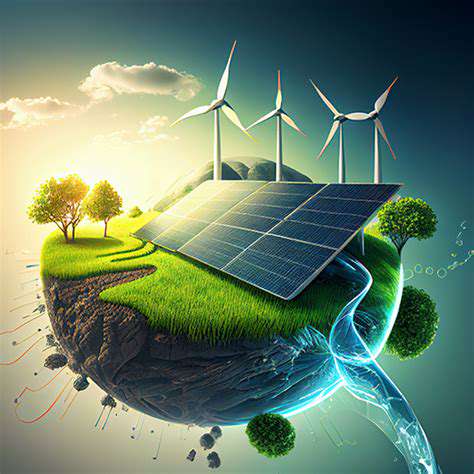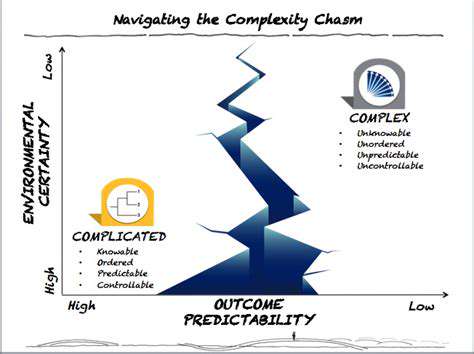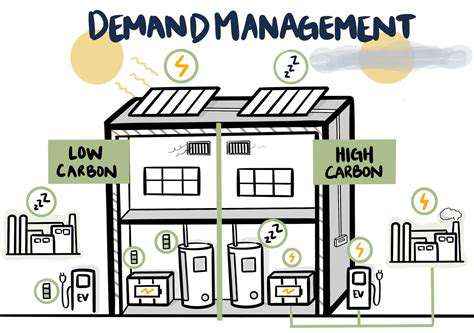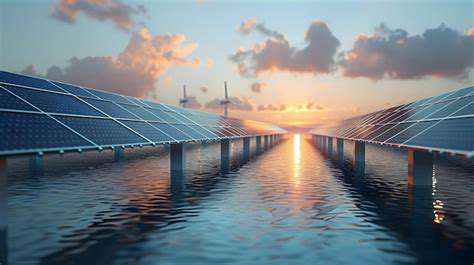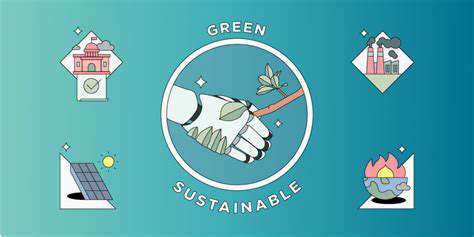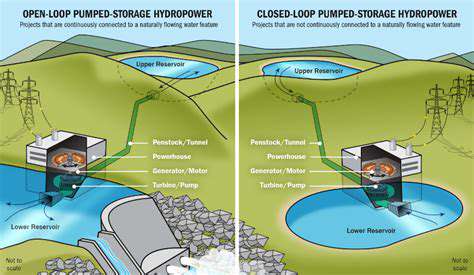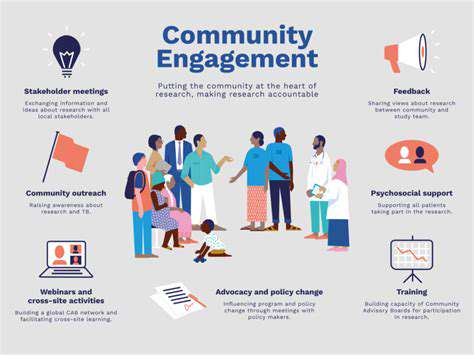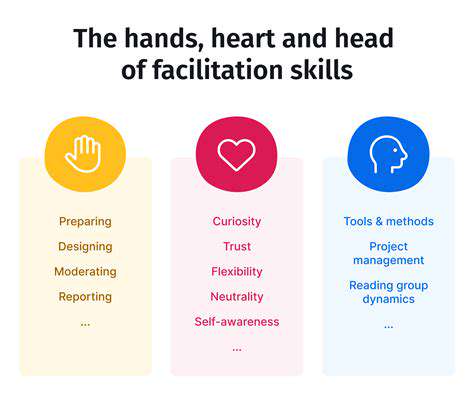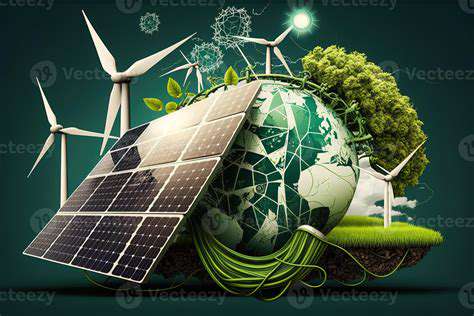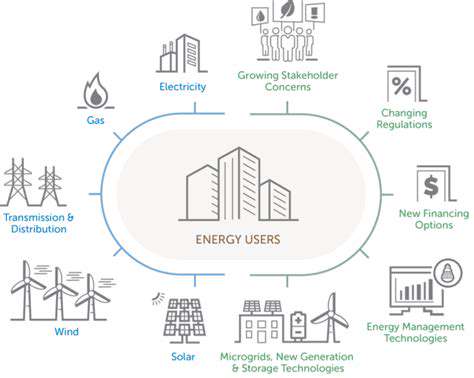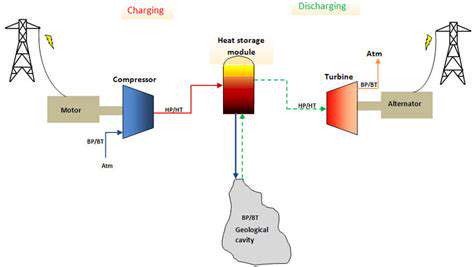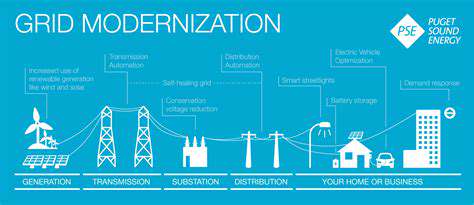Energy Storage for Energy Security
Grid Stability and Resilience: Enhanced Energy Security
Grid Stability and Resilience in the Energy Transition
The increasing integration of renewable energy sources like solar and wind presents significant challenges to traditional grid stability. Intermittency of these sources necessitates robust energy storage solutions to ensure a consistent and reliable power supply. Energy storage systems act as a buffer, smoothing out fluctuations in renewable energy generation and providing grid operators with the necessary flexibility to manage power flow effectively. This crucial role of energy storage in maintaining grid stability is paramount for a sustainable energy future, enabling a transition to a cleaner energy system without compromising on reliability.
Furthermore, the growing demand for electricity, particularly in rapidly developing economies, places additional stress on existing grids. Energy storage technologies can help to alleviate this pressure by providing on-demand power during peak hours, reducing the need for costly and environmentally damaging upgrades to the power infrastructure. This enhanced grid stability translates into improved resilience against unforeseen events, such as natural disasters or equipment failures, by providing a backup power source and enabling faster restoration times.
Improving Energy Security with Enhanced Storage
Energy security, encompassing both reliability and affordability of energy supply, is significantly enhanced by the strategic integration of energy storage systems. A resilient energy grid powered by diversified energy sources, including renewables, becomes less susceptible to disruptions caused by geopolitical events or supply chain issues. This diversification reduces dependence on volatile fossil fuel markets, fostering energy independence and enhancing national security.
By enabling the integration of variable renewable energy sources, energy storage plays a pivotal role in achieving greater energy security. This, in turn, contributes to long-term cost savings by reducing reliance on fossil fuel imports and supporting the development of a more sustainable energy mix. The improved grid stability and resilience facilitated by storage technologies directly contribute to a more robust and secure energy future.
Energy storage systems can offer a significant reduction in the vulnerability of the energy supply chain to geopolitical risks. This is achieved by enabling a reliable and consistent energy flow, independent of fluctuating external factors. This independence strengthens energy security and enhances the overall stability of the energy sector.
The Role of Energy Storage in a Decentralized Energy System
The shift towards a more decentralized energy system, with distributed generation and microgrids, necessitates advanced energy storage solutions. These systems can effectively manage energy flows within local grids, mitigating the impact of fluctuations in renewable energy generation and enhancing the resilience of individual communities. Storage enables the integration of rooftop solar panels and other localized renewable energy sources, increasing the overall efficiency and reliability of the energy system.
Distributed energy storage solutions are crucial for enhancing the reliability and resilience of microgrids. They enable these localized systems to operate independently, reducing reliance on the centralized grid and providing backup power during outages. This decentralized approach fosters greater energy independence, particularly in remote or underserved areas, improving overall energy security and access.
The Economic and Environmental Advantages
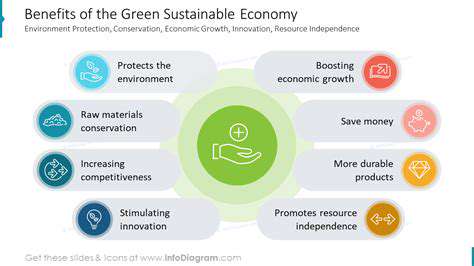
Economic Advantages of Sustainable Practices
Sustainable practices, while often perceived as environmentally driven, offer compelling economic advantages. Companies adopting these practices often experience reduced operating costs in the long run. This is due to lower energy consumption, reduced waste disposal expenses, and potentially lower input costs as they source materials from more sustainable and ethical suppliers. For example, implementing energy-efficient technologies can significantly decrease electricity bills and improve the bottom line.
Furthermore, sustainable practices can enhance a company's brand image and attract environmentally conscious consumers. This increased consumer appeal translates into higher sales and brand loyalty. By positioning themselves as environmentally responsible, companies can build a strong reputation and command premium prices for their products. This can lead to a competitive advantage in the marketplace.
Environmental Impacts of Unsustainable Practices
The environmental consequences of unsustainable practices are far-reaching and often irreversible. Deforestation, for instance, leads to habitat loss, biodiversity decline, and increased greenhouse gas emissions. These effects can have cascading consequences for the ecosystem, impacting water resources, air quality, and ultimately human health.
Unsustainable resource extraction practices often lead to soil degradation and water contamination, impacting agricultural productivity and access to clean drinking water. These consequences extend beyond immediate environmental damage, impacting future generations by compromising their access to essential resources.
Environmental Benefits of Sustainable Practices
Sustainable practices offer a multitude of environmental benefits. These benefits include reduced carbon emissions, minimized pollution, and conservation of natural resources. Implementing sustainable agricultural practices, for example, can greatly reduce the use of harmful pesticides and fertilizers, protecting water sources and soil health. This leads to a healthier ecosystem and a more resilient environment.
Sustainable practices also promote biodiversity by protecting habitats and reducing the impact of human activities. By minimizing our footprint on the planet, we safeguard the delicate balance of ecosystems and ensure the survival of numerous plant and animal species. This ultimately benefits human well-being by providing essential ecosystem services like clean air and water.
Long-Term Sustainability and Economic Growth
The path towards long-term sustainability isn't just about environmental protection; it's also crucial for economic growth. Investing in sustainable practices fosters innovation, creates new job opportunities, and stimulates economic activity in green sectors. This includes renewable energy, sustainable agriculture, and eco-tourism.
Integrating sustainability into business strategies is not just a trend; it's an essential aspect of long-term economic viability. By adopting a more sustainable approach, businesses can ensure their continued success and contribute to a healthier planet for future generations. A sustainable economy is an inclusive economy that considers the needs of present and future generations.
